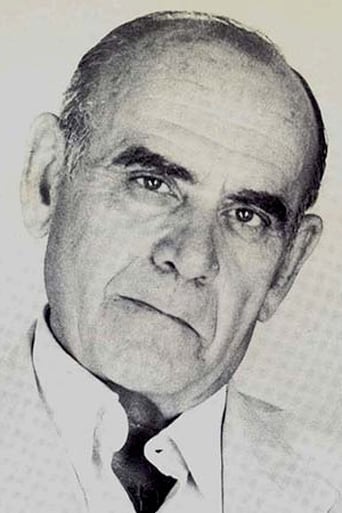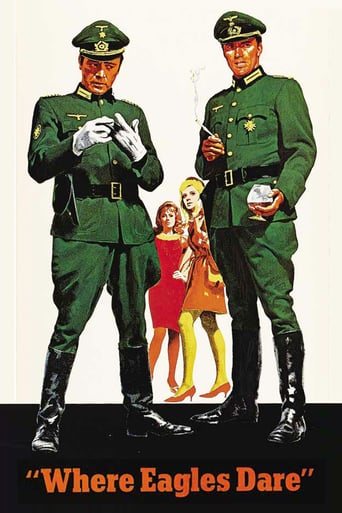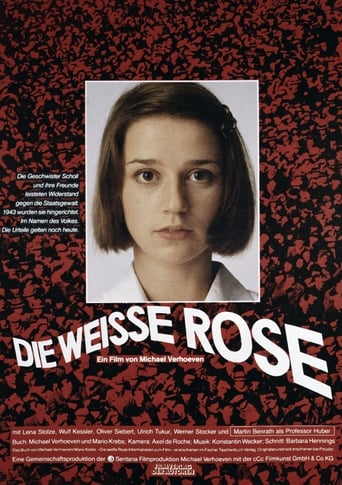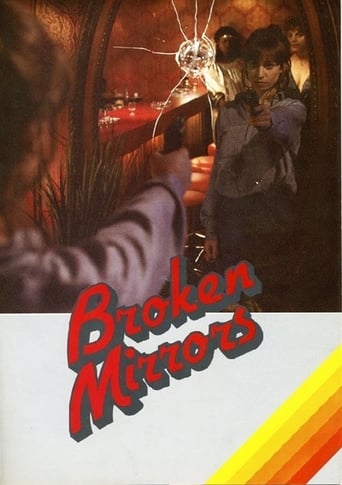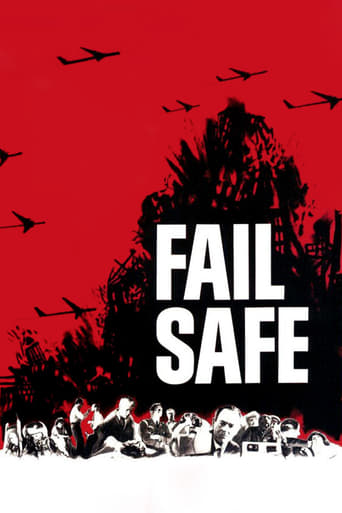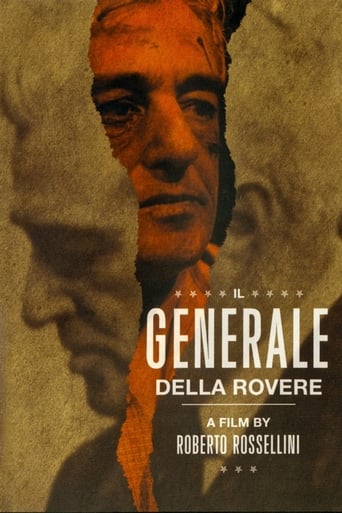
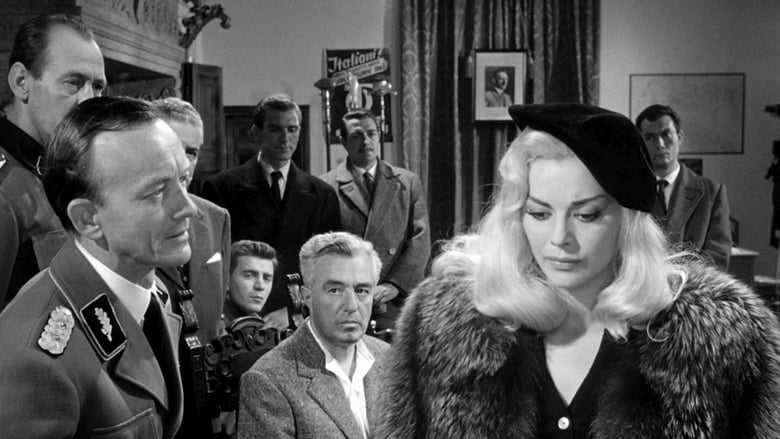
General Della Rovere (1959)
The Gestapo forces con man Victorio Bardone to impersonate a dead partisan general in order to extract information from his fellow inmates.
Watch Trailer
Cast


Similar titles
Reviews
Roberto Rossellini directs fellow neorealist Vittorio De Sica in "General della Rovere".De Sica – we forget how much of a suave, handsome actor the director was - plays Emanuele Bardone, a lowly con man struggling to make ends meet in 1940s, war-torn Genoa. His modus operandi? Promise his fellow Italians that he can find their missing loved ones in exchange for money. He prostitutes World War 2, and profits on the suffering of his countrymen.It's not long, though, before Bardone is reprimanded by the German Army and forced to impersonate a dead partisan general. His mission? Enter a prison and extract information from fellow inmates regarding the identity and location of an Italian Resistance fighter. Bardone does as told – he's a schemer who does whatever it takes to survive – but eventually undergoes a crisis of conscience. He then betrays the Germans and accepts his fate.The majority of Rossellini's more well known films are sentimental, and "General della Rovere", which won the Golden Lion at the Venice Film Festival, is no different. Though he holds his cast at an distance, content to let their actions do the talking, Rossellini's unusually austere aesthetic (classical camera work, gorgeous, inky blacks and whites) is nevertheless perfectly in line with most neorealist works, which, far from being a "gritty" movement, always sanctified the downtrodden and venerated the lowly. "General della Rovere" does the same, exalting Bardone as a fallen angel who eventually finds redemption.Most interesting about the film is the Nazi Colonel who recruits Bardone. He's played with nuance by Hannes Messemer, a real life German Colonel. In contrast, De Sica's character takes on the attributes of your typical movie Nazi; suave, debonair, amoral and coolly calculating.8/10 - "General della Rovere" was a critical and box office success upon release, but it's lesser Rosselini, formulaic and easy. Worth one viewing.
As great as Open City was, I think I like this one better because of its element of redemption. Also, I must confess I like that Rossellini has largely dispensed with his trademark neo-realism in favor of a more conventional narrative style. Instead of being on location, in the streets, most of his shots here are on sets, once even resorting to rather cheesy process shots. Otherwise, his sets are so well done, that I assumed, for example, that a cavernous prison block was real rather than constructed. Rossellini has thus created a play without being stagy. And the acting! Of course, this is Vittorio De Sica's movie. De Sica was larger than life, and Rossellini worked at governing the bombast. In fact, De Sica's distinguished stature -- silver mane and powerful build -- kept me from getting right into his Bardone character as a weasel. But perhaps it was that stature that allowed Bardone to carry out his scams. And it certainly helped the plausibility of someone like Bardone's becoming someone like Il Generale.Neglected in the reviews is the wonderful performance of Hannes Messemer as Colonel Müller. Another reviewer says that Müller had "fangs". In fact, Rossellini makes an effort to reveal how much Müller loathes the ruthless part of his work, first seeking to prevent reprisals, then, when he is alone, expressing frank distaste after being overruled by German command. Even when he is saddled with the cliché line, "We have ways of making you talk," he is far from a caricature. Then we are brought back to the reality of Müller's SS uniform by his remorseless treatment of Jews.Concerning the controversy... Italy imposed stringent political correctness on discussion of Italy's conduct in World War II. As the excellent documentary in the Criterion Edition points out, Rossellini could not have made Generale della Rovere ten years earlier, when criticism of Italians on the home front was a punishable offense. The story Italians told about themselves depended on which way the wind was blowing. After the war, everybody was an anti-fascist. (Just like the French, as revealed by Marcel Ophül's great documentary The Sorrow and the Pity.) A climactic scene in Generale della Rovere occurs when one who sought during the occupation to go along to get along -- not Bardone, who by now had changed -- was brought to book.An interesting note from the Criterion documentary: This is a true story, based on the real-life Bardone, named Bertone, who impersonated a Generale della Rovere. The story was first told as a novel, by a prison-mate of Bertone's, Indro Montanelli, who escaped. Though there is torture by the Germans in the movie, Montanelli says that the Germans never used torture, only the Italians. To me this was a shocker, making me wonder if, despite the monumental criminality of the Germans in World War II, the stock scenes we grow up with, of the "We have ways of making you talk" variety, are exaggerations and if so, to what degree.Playing the impostor, even in the face of death, is a familiar story. Dickens' Tale of Two Cities comes to mind. Arthur Miller's Incident at Vichy is a similar tale. In fact, I see Kurosawa's Kagemusha as a retelling of Generale della Rovere, though Kurosawa strenuously denied it. Perhaps becoming the man you impersonate is simply a universal theme.Anyway, this one's a masterpiece. See it!
Unlike some Italian films (such as several by Fellini), this is a very direct and approachable film for the average viewer--no symbolism, odd camera-work or surreal aspects at all. As such, it's a good film as an introduction to international cinema.Vittorio De Sica does a marvelous job playing the role of a rogue who swindles money from desperate relatives seeking information and help about their loved ones held in Nazi jails in occupied Italy. Eventually, it all catches up to him and he is offered a chance to avoid a LONG jail term or even execution--he is to impersonate a general who is leading those Italians seeking to expel the Germans. It seems the Nazis accidentally killed this general when he was trying to escape and they wanted to PRETEND he was still alive in order to smoke out members of the resistance. At first, De Sica agrees but over time he has a hard time remaining so cynical and self-absorbed. His transformation seems believable--from a thief to a patriot and is well worth watching.
Though I've only seen this film once, when I was actually young, it has remained one of my lifetime 'greatest' films. It deals with how each of us has a self image, and how that self image, and the lives we lead, may be influenced by how others view us. This is, I think, one of the great common themes of our lives - and this movie examines it beautifully. Though I saw it so long ago, I still remember it each time I see an example of its theme played out in today's events. Most notably, in the U.S., it has been shown in the direction that many (but not all) of our Supreme Court justices take once they receive their lifetime posts. Their thoughts, no matter how narrow they had been, become wider and wiser once that mantle of office settles onto their personalities. This great movie prepared me to see and understand this miraculous process - and others like it.




